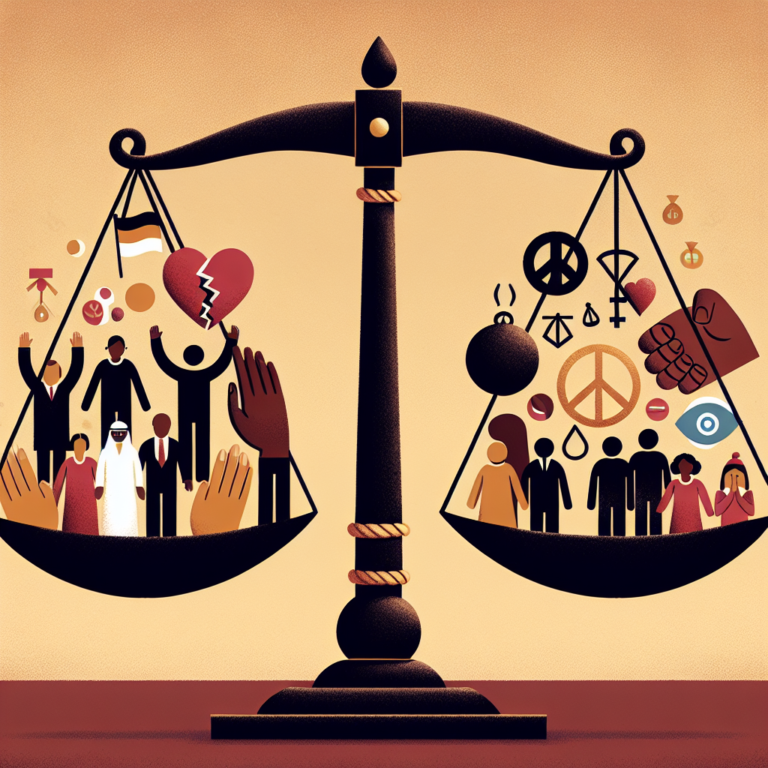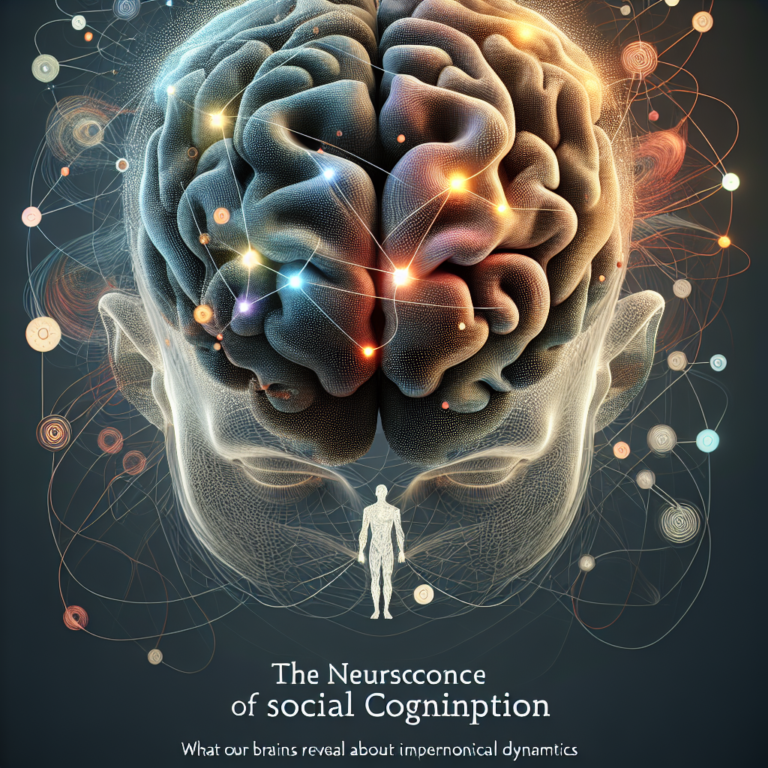
Introduction
Imagine walking into a crowded room filled with laughter, warmth, and an undeniable sense of connection. This ambiance often stems from the collective energy of people who care for one another. Altruism, the selfless concern for the well-being of others, can create not just ripples of kindness but waves that affect our mental health profoundly. In this article, we will delve into Beyond the Self: The Transformative Impact of Altruism on Mental Health, exploring how acts of service, kindness, and genuine empathy redefine our self-perception and contribute positively to our mental well-being.
Defining Altruism and Its Roots
What Is Altruism?
Altruism can be defined as actions performed with the intention of benefiting others without the expectation of personal gain. From small acts, like holding the door open for someone, to large-scale initiatives, such as volunteering for humanitarian causes, altruism manifests in various forms. Research indicates that these altruistic behaviors not only help others but also significantly impact the giver’s mental health.
The Psychological Foundations
Understanding altruism begins with exploring its psychological underpinnings. Humans are inherently social creatures, and our brains are wired for empathy and connection. Neuroscientific research has shown that when we engage in altruistic behavior, our brains release neurotransmitters like dopamine, which create feelings of happiness and satisfaction. This phenomenon is often referred to as the "helper’s high."
The Positive Impact of Altruism on Mental Health
Lowering Stress and Anxiety Levels
Engaging in altruistic acts has been linked to reduced levels of stress and anxiety. When individuals focus on the needs of others, they divert attention away from their problems and anxieties. A study published in the journal Health Psychology found that individuals who volunteered on a regular basis reported lower levels of stress and higher life satisfaction.
Case Study: The Volunteer Firefighter
Consider the story of a 34-year-old volunteer firefighter, Tom, who dedicated his weekends to serving his community. Tom initially joined to support his local community after witnessing a devastating fire. Over the years, he has noticed a marked decrease in his episodes of anxiety. The camaraderie he shares with fellow firefighters and the emotional connections he builds while helping those in distress serve as powerful antidotes to his mental health struggles.
Analysis: Tom’s story illustrates how committing to a cause shifts focus away from personal challenges, creating a sense of purpose that alleviates anxiety.
Promoting Positive Self-Image
Being altruistic can greatly enhance an individual’s self-esteem. Acts of kindness foster a sense of accomplishment and competence. Research in social psychology suggests that the act of helping others reinforces a positive self-perception.
Case Study: The Community Garden Initiative
In a small town, a group of friends started a community garden aimed at providing fresh produce to those in need. Participants reported increased self-worth as they took pride not only in their gardening skills but also in their contributions to the community.
Analysis: This case demonstrates how collective altruism allows individuals to redefine their self-image positively through impactful cooperation.
Building Resilience Through Connection
Altruism fosters social connections that enhance emotional resilience. When people are involved in altruistic activities, it creates social networks of support, which can provide assistance during tough times.
Case Study: The Mentorship Program
In a city’s mentorship program for at-risk youth, adults volunteered their time to guide teens through personal and academic challenges. Volunteers reported feeling more resilient during personal crises because of the strong relationships formed through mentorship, creating a support system that extended beyond the formal program.
Analysis: This example highlights how altruistic actions lead not only to individual growth but also community bonding, providing valuable emotional support.
Enhancing Overall Well-Being and Happiness
Numerous studies indicate that engaging in altruistic behaviors boosts overall well-being and happiness. A meta-analysis published in The Journal of Happiness Studies emphasized that those who regularly perform acts of kindness report higher happiness levels.
Chart: Comparative Happiness Levels Based on Altruistic Behavior
| Category | Happiness Score (out of 10) |
|---|---|
| Regular Volunteers | 8.5 |
| Occasional Volunteers | 7.0 |
| Non-Volunteers | 5.5 |
Source: Journal of Happiness Studies
Analysis: This chart effectively summarizes the correlation between altruism and increased happiness scores.
Navigating Challenges: Balancing Altruism and Self-Care
The Dangers of Compassion Fatigue
While altruism has a profound impact on mental health, it’s essential to recognize the risks of compassion fatigue. Individuals deeply invested in helping others may experience emotional exhaustion, leading to burnout. Finding a balance between altruism and self-care is crucial to sustain mental health.
Strategies for Sustainable Altruism
- Set Boundaries: Ensure you allocate time for self-care.
- Practice Mindfulness: Engage in activities that recharge you emotionally.
- Seek Support: Surround yourself with fellow volunteers for mutual support.
The Cultural Dimension of Altruism
Global Perspectives on Altruism
Altruism is not a universal concept; its interpretation varies across cultures. Some cultures emphasize individualism, focusing on personal success, while others may prioritize collectivism, highlighting community welfare. Understanding these perspectives is crucial in recognizing how altruism impacts mental health globally.
Case Study: Humanitarian Efforts in Disaster Relief
Following natural disasters, communities worldwide engage in massive altruistic initiatives. In regions like Haiti post-earthquake, international volunteers mobilized to offer support. Psychological studies showed that both the aid workers and recipients reported improvements in mental health through these altruistic exchanges.
Analysis: This reinforces that altruism transcends cultural barriers, showcasing its profound impact on mental health, regardless of origin.
The Role of Altruism in Modern Society
Technology and Altruism: A New Frontier
The rise of social media has created new avenues for altruism. Crowdfunding platforms, awareness campaigns, and digital volunteering have made it easier to engage in acts of kindness.
Case Study: Online Fundraisers
Online fundraising platforms like GoFundMe have enabled individuals to support causes that resonate with them deeply. Stories of recovery and community support shared online often lead to a surge in donations, benefiting both the receiver and the donor in terms of mental health.
Analysis: This demonstrates how the digital age has transformed the altruism landscape, making it easier than ever to engage in selfless acts.
Conclusion
The journey into Beyond the Self: The Transformative Impact of Altruism on Mental Health reveals a powerful truth: helping others profoundly enhances our mental health. Altruistic acts lower stress, boost self-esteem, promote resilience, and elevate overall happiness. However, it is essential to navigate the potential pitfalls of compassion fatigue and ensure that self-care remains a top priority.
As you reflect on this insight, consider how you can integrate altruism into your life—whether it be volunteering, mentoring, or simply lending a hand to someone in need. The benefits are not just immediate for those you help; they reverberate back to you, fostering a greater sense of purpose and joy. The next time you engage in an act of kindness, remember that you are also investing in your mental well-being.
FAQs
1. How can altruism impact my mental health?
Engaging in altruistic behaviors can lead to reduced stress, increased happiness, and improved self-esteem.
2. What are some simple acts of kindness I can do?
You can start small by helping a neighbor with groceries, donating to a local charity, or volunteering at a shelter.
3. Is there a risk of burnout while engaging in altruism?
Yes, compassion fatigue can occur if you’re heavily invested in altruistic acts without proper self-care.
4. How can I balance altruism with self-care?
Set clear boundaries, incorporate mindfulness practices, and ensure you seek support from others.
5. Can technology enhance altruistic efforts?
Absolutely! Social media and crowdfunding platforms have made it easier for people to contribute, making it more accessible than ever.
Through understanding and embracing the transformative power of altruism, we open doors not just for others, but for our own mental health journey. Let’s venture beyond the self and cultivate a world imbued with kindness and well-being.















